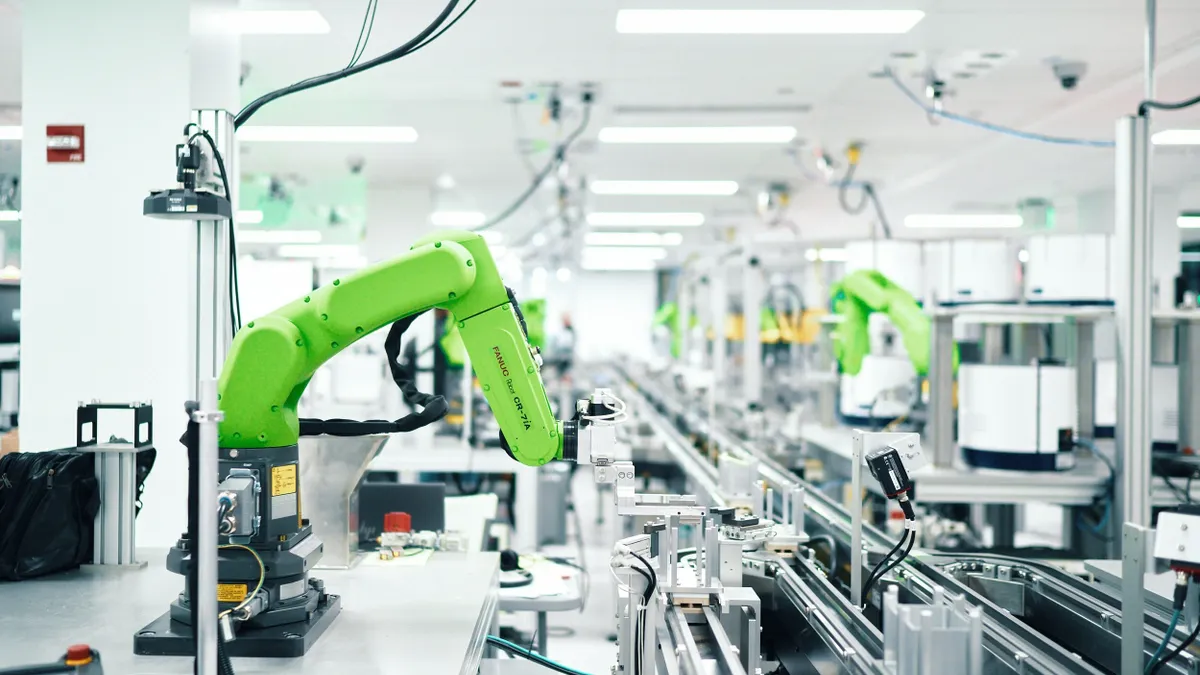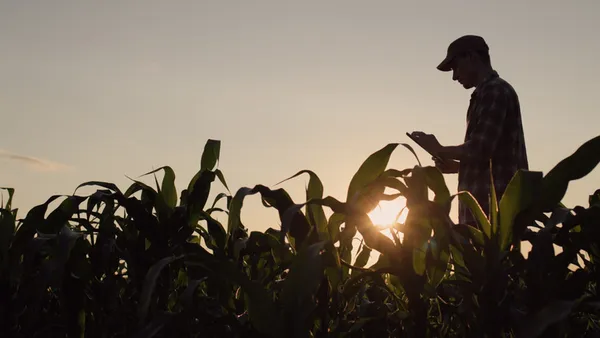Dive Brief:
- Foremost Farms USA is working with Ginkgo Bioworks on a new technology that converts dairy co-products, such as permeate and whey, into environmentally friendly, sustainable materials, the companies said Thursday.
- Through the partnership, the Midwest dairy cooperative will leverage Ginkgo’s bioproduction services to develop and bring to market a technology that could upcycle billions of pounds of dairy co-products each year. The technology aims to reduce the carbon footprint of dairy farms while creating a new type of revenue stream for producers.
- These efforts come as more farmers adopt biodigesters, which transform cattle waste into renewable gas, to control methane emissions. Whey and other dairy co-products, typically disposed of as wastewater, have been harmful to the environment and costly for farmers to convert into value-added products.
Dive Insight:
Foremost is forging ahead with Ginkgo, which is building a platform for cell programming and biosecurity, to further its sustainability commitments and help farmers during tough economic times.
Soft demand for milk and dairy products has weakened prices compared to last year as farmers continue to deal with rising input, feed and labor costs, according to the American Farm Bureau Federation.
To help offset some of these costs, Foremost said a new type of technology is in the works that would help dairy farmers convert their co-products into value-added materials, creating a new revenue stream and way to reduce operational emissions.
The dairy industry in general produces tons of whey and other co-products, leading to environmental problems due to its high organic matter content, according to research at the National Library of Medicine.
While there are methods to transform unwanted end products into whey proteins, powders, lactic acid and other value-added goods, handling and disposing of the raw material can be harmful and costly to farmers and the environment.
"We are innovating to continue our trajectory as environmental stewards that take care of our world and create value for dairy farm families by potentially lowering manufacturing costs and creating a significant new revenue stream for those farmers.” Greg Schlafer, president and CEO at Foremost Farms, said in a statement.
To advance its novel technology, Foremost is leveraging Gingko’s biomanufacturing services and expertise in metabolic engineering.
“Ginkgo is always on the lookout for opportunities to use biology to create more sustainable products, and we are especially interested in helping customers in legacy industries develop improved production processes and a more circular economy,” Jennifer Wipf, head of commercial, cell engineering at Ginkgo, said in a statement.
In recent years, anaerobic digesters have grown in popularity as a way to convert animal waste into renewable gas and break down unwanted materials into value-added products. Despite corporate and governmental backing for these projects, dozens of environmental groups say biodigesters undermine climate efforts and encourage the proliferation of “factory farms.”
Foremost, which produces millions of pounds of cheese, butter, whey and milk protein ingredients each year, has hundreds of dairy cooperative members throughout the Midwest in states such as Illinois, Michigan and Wisconsin.











